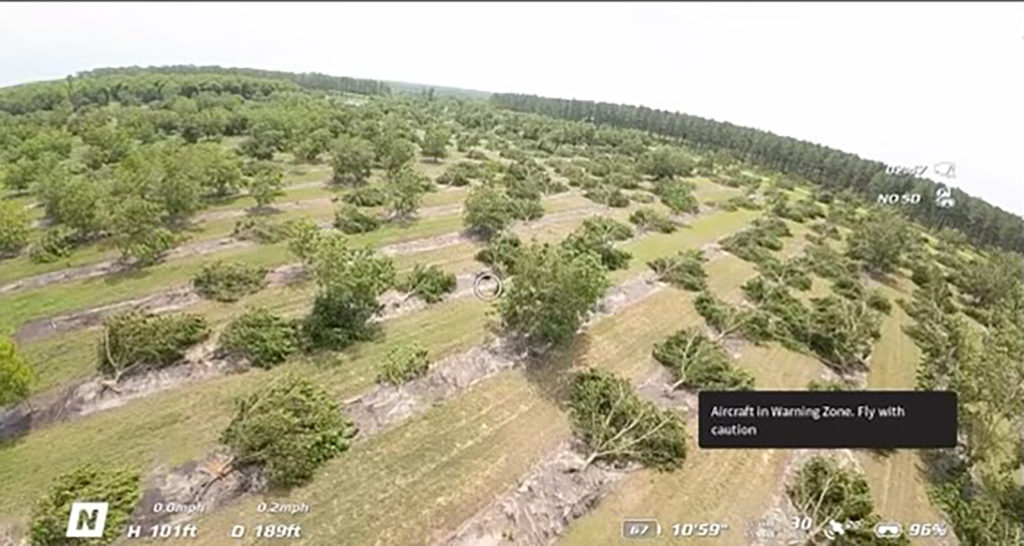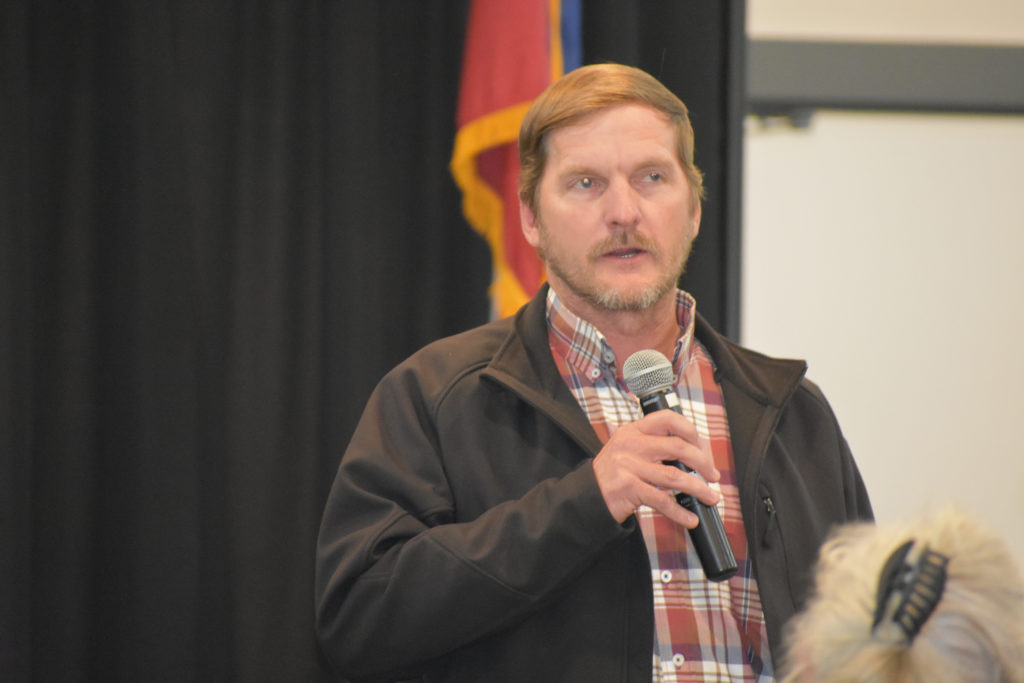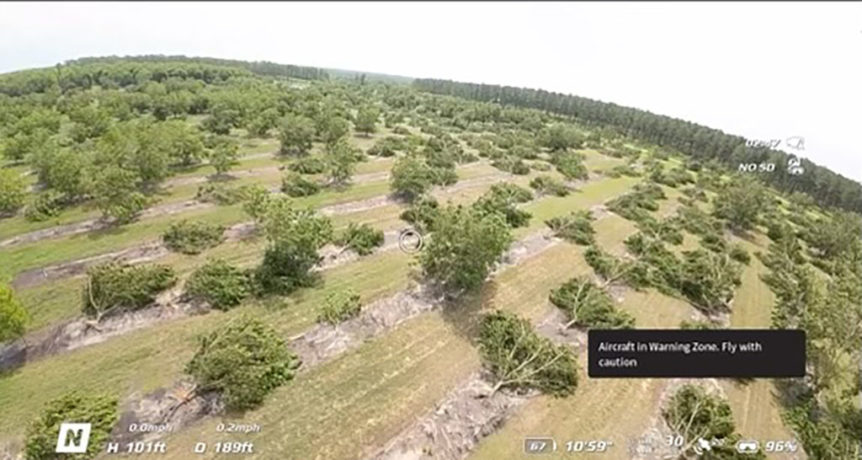
By Clint Thompson
Back-to-back seasons of hurricane activity have significantly impacted pecan production for one Georgia grower. Instead of being down and out following Hurricane Idalia in 2023 and Helene in 2024, though, Buck Paulk is rebounding with new and improved orchards and a new outlook on his farming life.
“You just go through it and do it and still stand on the other side. It hurts. Insurance helps. To have hurricane and tropical storm insurance, it helps you to be able to afford to do it,” Paulk said. “Just being in position before the hurricanes, I had very little debt and that helps. I was in position, and not that I enjoy it or like it and I can’t keep doing it, but I can initially take that lick and continue to go.”

Statistical Impact
Helene devastated pecan production in Southeast Georgia when it moved through the region last September. That followed a similar trek from Idalia the prior year. Paulk lost about 26,000 trees from Helene and about 19,000 trees from Idalia; totaling 38% of his total production following both storms.
Still, Paulk thinks big picture when reflecting on the storms’ impacts.
“Some of these fields were going to be cut down and replanted. Now you don’t go about it in a manner that the hurricanes did, but some of it, I can think of a 100-acre block that was going to come out in January. But Helene took 49% of it down with the crop,” Paulk said. “There’s some things that are going to happen on a schedule, but it took a lot of things that were not going to come out for decades.”
Paulk’s replanting strategy centers on growing more scab resistant varieties like Avalon, Lakota and Creek. That’s allowed him to have a more positive mindset for the future.
“We’re getting out of Stuarts. We’re getting out of Desirables. I can get out of Stuarts quicker than I can Desirables because Desirables are my predominant variety. But that is in a system where it’s going to take years to get out of it,” Paulk said. “When you consider a variety going back in it’s all about scab resistance.”










